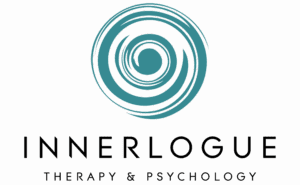Adult ADHD Therapy - Strategies to Focus, Organize & Thrive
Personalized counselling to help adults understand ADHD, regulate emotions, and improve executive functioning, offered in Calgary or online across Alberta.
Do you feel “all over the place”?
If you find yourself procrastinating, forgetting important things, or getting emotionally overwhelmed by small triggers, you’re not alone.
ADHD is more than a concentration issue. It’s a regulation disorder that affects attention, energy, emotions, and motivation. Many adults only discover they have ADHD after years of masking, struggling to keep up, or believing something is wrong with them.
At Innerlogue Therapy & Psychology, we offer ADHD-informed counselling that helps you understand your brain, work with your natural rhythms, and build practical, meaningful strategies to live well.
Our approach. Your progress.
Holistic ADHD Understanding
Therapy explores how ADHD affects attention, energy, emotion and motivation.
Practical Strategies
Learn tools like visual supports, breaking tasks into steps, external reminders, routines and emotional regulation.
Emotional Regulation & RSD Work
Address rejection sensitivity and mood crashes using CBT, DBT and narrative techniques.
Meet Our Therapists
Living with ADHD as an adult comes with unique challenges, but you’re not alone. Our team offers warm, practical support to help you manage focus, overwhelm, and self-esteem with more clarity and confidence. Whether you’re newly diagnosed or just starting to explore how ADHD shows up for you, we’re here to help, without judgment.

Hannah Reid
Therapist helping couples & families strengthen connections and individuals reconnect with themselves using evidence‑based interventions in a welcoming space.

Danielle Topley
Offers kind, practical support for neurodiverse teens and adults working through anxiety, depression and eating struggles.

Melanie LeBlanc
Melanie supports healing and resilience with warm, attentive, holistic care, helping clients move through grief, illness and trauma at their own pace.
What ADHD Actually Looks Like?

ADHD isn’t just about being distracted or “hyper.” It’s about difficulty regulating attention, energy, and emotion. That means:
- You may procrastinate important tasks, then scramble to meet deadlines.
- You might forget small things or hyperfocus for hours and crash afterward.
- Emotional spirals or shutdowns can follow even small bits of criticism or conflict.
Many of our clients are bright, capable, and driven, but they’re exhausted from trying to meet the world’s expectations with a brain wired differently.
Executive Dysfunction: It’s Not Laziness
Executive dysfunction is at the core of ADHD. It affects your ability to:
- Plan and prioritize tasks
- Start or finish things on time
- Shift gears when interrupted
- Stay organized and consistent
In therapy, we teach strategies such as:
- Using checklists or visual reminders
- Breaking tasks into manageable steps
- Creating routines that don’t rely solely on motivation
- Regulating emotions to prevent shutdowns or meltdowns

Understanding the ADHD Brain

The ADHD brain often craves novelty, stimulation, and urgency due to differences in dopamine regulation. This helps explain why:
- Social media scrolling feels easy, but paying bills doesn’t
- You binge new hobbies, but forget to do the laundry
- You thrive in chaos, but struggle with routine
Together, we’ll explore how impulsive behaviors (like shopping, eating, or rabbit-hole researching) may be unconscious self-regulation attempts, and create better coping strategies that still meet your stimulation needs.
We don’t focus on “fixing” ADHD. Instead, we help you build systems that align with your brain’s natural functioning.
Focusing Your ADHD Energy
ADHD can feel like your brain has an “all or nothing” switch:
- Some days are wildly productive, others feel like molasses
- You may zone out during meetings, but hyperfocus on creative work until burnout
- Even small tasks can feel overwhelming and exhausting
In therapy, we’ll build tools to help you manage this dynamic:
- Gamify tasks to make them more engaging
- Use pacing strategies and energy tracking
- Create realistic work/rest blocks
- Develop transition rituals to exit hyperfocus without crashing

Emotional Regulation & Rejection Sensitivity

One of the most overlooked aspects of ADHD is how deeply it impacts emotions. If you’ve ever:
- Replayed feedback for days
- Spiraled from a small comment
- Avoided relationships, jobs, or therapy out of fear of failure
You may be experiencing Rejection Sensitivity Dysphoria (RSD).
We use CBT, DBT, and narrative therapy to:
- Reframe harsh inner narratives
- Build self-compassion
- Challenge avoidance patterns rooted in fear of rejection
Naming these experiences can be a massive relief. We help you respond with intention, not fear.
Ready to thrive with your unique brain?
Book a free consultation and discover how our ADHD therapists in Calgary and across Alberta can help you gain clarity, energy, and practical tools to live well, your way.
Frequently Asked Questions
No. Many clients begin therapy while exploring the possibility of ADHD. We can help you identify patterns, understand your brain, and guide you toward a formal assessment if needed.
Not always. While medication can be helpful, therapy addresses areas medication can’t, like emotional regulation, organization, and self-worth. We work collaboratively if you’re already on medication or considering it.
Absolutely. Many of our clients are perfectionists, professionals, or caregivers who are “functioning” externally but overwhelmed inside.
Yes. We support teens, adults, and parents navigating ADHD, both with or without a formal diagnosis.
Related Topics

5 Signs Your Child Might Benefit from a Psychoeducational Assessment
5 Signs Your Child Might Benefit from a Psychoeducational Assessment As a parent, it’s natural to want your child to thrive both academically and emotionally.

8 Essential Life Skills For ADHD Parents | Innerlogue
Adults diagnosed with ADHD face unique challenges. Often, they were not taught effective coping strategies during childhood, and their symptoms might have been misattributed or


